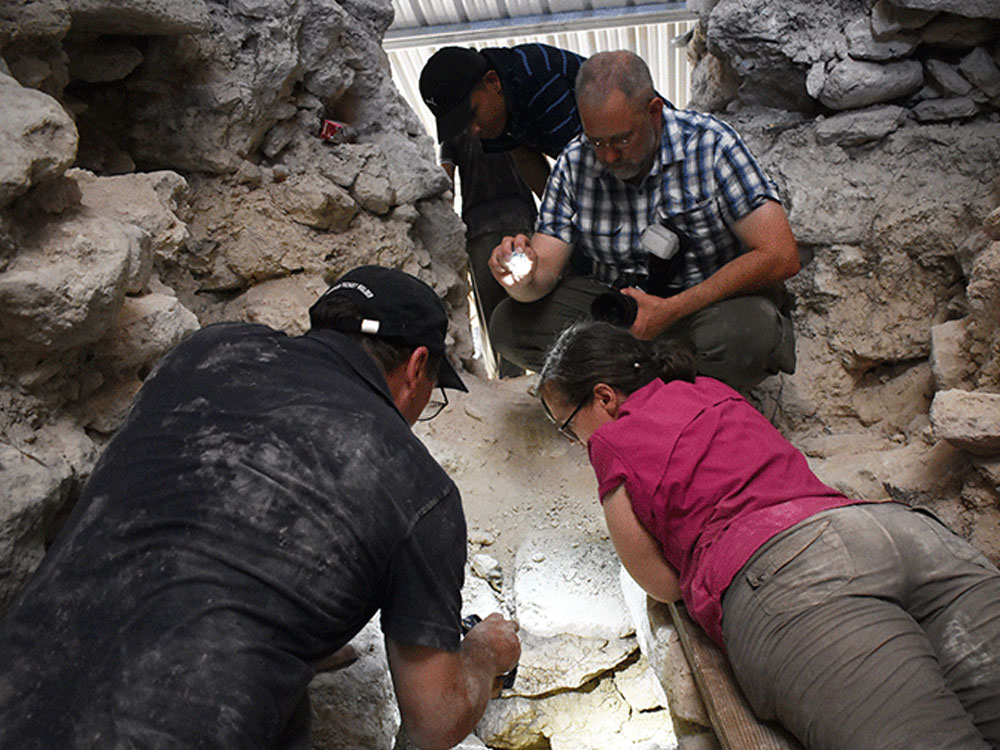
Why Pursue a PhD in Anthropology
The Department of Anthropology is committed to understanding human-environment relationships from multiple and intersecting perspectives—archaeological, biological, medical, and ethnographic. As a discipline, Anthropology comprises both philosophic and scientific inquiry into different ways of being human. This doctoral program stands out in the academic landscape due to its holistic approach to human-environmental relationships as they shape cultural and biological variation in the past, present, and future. This program aims to prepare leading professionals for applied fields as well as academic research and teaching careers.
Anthropologists contribute to our world by synthesizing and representing the knowledge they have gained, whether by assembling new philosophical and scientific perspectives for the academic community; providing local insights about landscape histories to institutions concerned with the conservation or development of environmental resources; or working to better understand human and nonhuman animal relationships.

Anthropology Students at UT San Antonio
Anthropologists trained within our program are generating essential knowledge about this ever-changing planet by focusing on important avenues of research, including:
- The organization of sustainable cities in the ancient and modern world
- The practices through which people attribute value to their environment
- Adaptations that connect humans to their primate relatives
- The ideas by which people throughout the world recognize disease and contamination—whether in human bodies, animal habitats, or physical environments—and seek to heal them
Admission & Application Requirements
Applications are submitted through the UT San Antonio Graduate Application. Please upload all required documents (listed below) on your UT San Antonio Graduate Application. It is the applicant’s responsibility to ensure completion and submission of the application, a nonrefundable application fee, and all required supporting documents are on file with UT San Antonio by the appropriate application deadline.
| Anthropology (PhD) | ||
|---|---|---|
| Admission is only available for the Fall semester | ||
| Required Degree | Bachelor's Degree from an accredited college or university in the United States or have proof of equivalent training at a foreign institution. | |
| Minimum GPA | 3.0 (on a 4.0 scale) Departments may consider GPA of last 60 semester credit hours | |
| Coursework | Completed adequate credit hours or foreign institution equivalent coursework as preparation for the program. | |
| Transcripts* | Required from all institutions attended; international transcripts must be recorded/translated to English | |
| Credential Evaluation | Required if you have earned university-level credit from foreign institutions. Submit an evaluation of your transcripts from FCSA or any NACES-approved credential evaluation agency. | |
| English Language Proficiency | 550 TOEFL Paper / 79 TOEFL Internet / 6.5 IELTS / Duolingo 100 | |
| Purpose Statement | Required | |
| Resume | Required | |
| Letters of Recommendation | 3 academic or professional reference(s) demonstrating your attributes for successful completion of this program (you will request these through the Graduate Admissions Application; let your recommenders know of your deadline to ensure submissions are on time) | |
| Writing Sample | Required | |
| *Unofficial transcripts will be taken into consideration for admissions; however, if admitted into the program, you must submit official transcripts to the University. | ||
Application Deadlines
Applicants are encouraged to have their admission file completed as early as possible. All applications, required documents and letters of recommendation, if applicable, must be submitted by 5:00 PM U.S. Central Time on the day of the deadline. Deadlines are subject to change.
| Anthropology (PhD) | |||
|---|---|---|---|
| Timing on Admission Decision: Applicants can expect to receive an admission decision within 4 to 6 weeks after December 1. | |||
| Application Deadlines for: | Priority | International | Domestic |
| Fall 2026 | December 1 | December 1 | |
| Spring | Not Available | Not Available | |
| Summer | Not Available | Not Available | |
Funding Opportunities
COLFA Student Funding Opportunities Anthropology Student Funding OpportunitiesCareer Options
UT San Antonio prepares you for future careers that are in demand. The possible careers below are based on data pulled by a third-party tool called Emsi, which pulls information from sources like the U.S. Bureau of Labor Statistics, U.S. Census Bureau, online job postings, other government databases and more to give you regional and national career outlook related to this academic program.
While in a doctoral program, a student may earn a master’s degree provided the following conditions are satisfied:
- A student must be admitted to candidacy.
- A student is eligible to receive a master’s degree upon completion of University-wide requirements and any additional degree requirements specific to the program.
- The Doctoral Studies Committee, Department Chair, and the Graduate Associate Dean of the College must recommend students for the degree.
- The student must apply for graduation by the published deadline the semester prior to awarding the doctoral degree.
- All required coursework in the doctoral program at the time of admission to candidacy must have been taken within the previous six years.
- If the master’s degree requires a thesis, the degree cannot be awarded on the basis of the doctoral qualifying examination.
- Students will not be approved for an additional master’s degree in the same field in which an individual has previously received a master’s degree.
Graduate course offerings view environmental anthropology through multiple lenses: political economy, landscape ecology, cultural ecology and evolution, medical anthropology, and primate conservation and behavioral ecology.
Typically, our graduate courses are offered on weekday afternoons. Classes may either meet once a week for three hours or twice a week for 1.5 hours each. We do not currently offer night or weekend classes.
Faculty research specializations include:
- Archaeology of the Maya lowlands and Andean South America
- Archaeology of Texas and the Greater Southwest
- Primate behavioral and conservation ecology in Southeast Asia, Africa, and Latin America
- Conservation and mining practices in the South Pacific
- Indigenous and environmental politics in lowland and Andean South America
- The cultural anthropology of Texas and the Plains
- Medical anthropology of the U.S.-Mexico border region
- Environmental influences on human biology and health in North America and Africa

